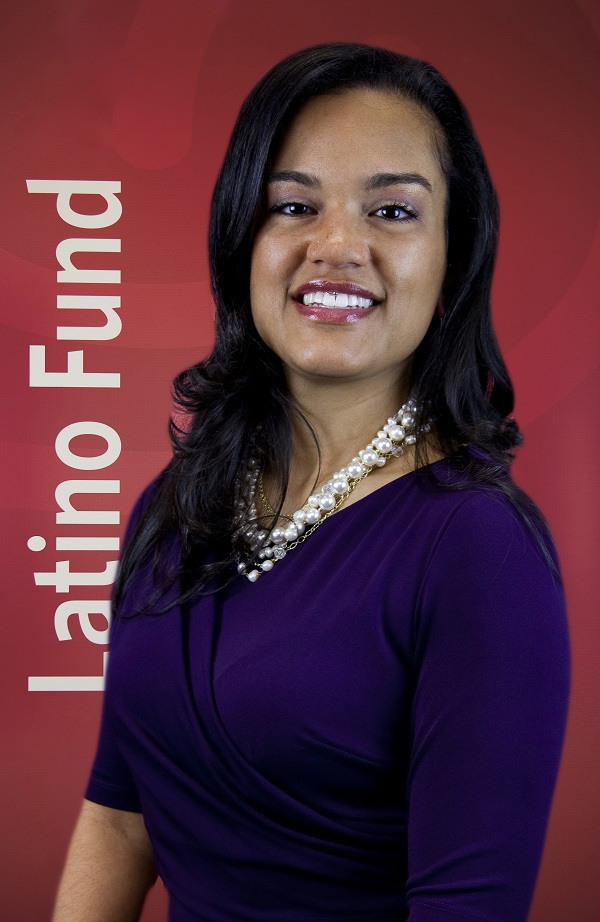Celebrating Latino Leaders: Yadira Duran Ijeh
"It's easier, as a young person, to see yourself doing something when you see that somebody else is doing it."
 |
| "It's easier, as a young person, to see yourself doing something when you see that somebody else is doing it." |
Yadira Duran Ijeh
Director of Change Management, Dept. of Children and Families
Hometown: Bridgeport
A Busy Household
Yadira's father was from the Dominican Republic and migrated to Puerto Rico where he met her mother. The two moved to New York in the mid 70s, where they worked in bodegas and corner grocery stores. The young couple then relocated to Bridgeport and started a family.
"My family nicknamed me Yari, which I feel is the person I've become. Legally it's Yadira. But anywhere you go, you ask for Yari, you don't ask for Yadira."
Yari's home was the center of her social world. In addition to having a biological sister, she grew up with many foster siblings. She estimates that her parents fostered upwards of 150 children and teenagers over the years.
"My mother did it out of love. She had love to give and this made it easy for her to share it. Before becoming a foster parent, she studied to become a certified nursing assistant and worked in a nursing home. She eventually left that field of work to dedicate herself full time to us -- my sister, me and the foster children placed with us."
Many of the foster children lived with them as temporary placements, but several stayed for five to six years. The home became a magnet for other teenage friends in the neighborhood.
"My sister and I always talk about having grown up with a bunch of kids. I was always the oldest. When I was in high school there were seven of us at home and we were all high school students. So it was a lot of fun. And we're still in touch with them."
On Her Profession
Yari turned her personal experience as a member of a foster home into a professional career with the Department of Children and Families. As Director of Change Management, she oversees policy changes to fix systems that are not working or are inconsistent. Part of her work involves giving a voice to the adolescents under DCF care. One recent success was a sibling bill of rights that will provide a process for foster children to visit brothers and sisters. Another was the development of criteria for obtaining a drivers license.
"The practice wasn't consistent. There were some regions where the requirements were applied differently and kids talk. They would say, 'Wait a minute, that's not fair. You got it, but I didn't.' With their help, we were able to get some practice guidelines and criteria for getting a license."
Giving Back to the Community
Growing up, Yari remembers her family would reach out to families in crisis with meals. As an adult, her efforts have centered on volunteering and serving on nonprofit boards.
"For a few years I volunteered at the Shubert Theater. I ushered folks to their seats. I'd see people I knew and they'd look at me and say, 'What are you doing here?' and I'd say, 'I'm giving back.'"
Yari is active with the New Haven Juvenile Review Board, which gives students who have been arrested for the first time an alternative to the criminal justice system. She also volunteers for True Colors, which develops programming and services for gay youth.
"Helping young people achieve success, whatever that is for them, is important to me."
A Mentor Opens Her Eyes
In 2007, Yari met Progreso Latino Fund (PLF) co-founder, John Padilla, who opened her eyes to the world outside of government work. She attended her first PLF forum, and it was a life altering moment for her.
"I was intrigued by the number of Latinos in the room that I didn't even know. Often, when you are doing this work, you feel like you are alone. And when I looked around the room, I thought, no we are not. How do we capitalize on this? How do we take this energy and move it forward with some of the issues that are affecting our own people in the community."
Now she serves on the PLF Advisory Committee.
On what it means to be a successful Latino and what is needed for more Latinos to be successful
Yari says that one of the things the Progreso Latino Fund has been trying to do is to tell people's stories.
"It's easier, as a young person, to see yourself doing something when you see that somebody else is doing it. We want to show our young people, and even ourselves, that there are more of us out there and that we are doing such great things for ourselves and our community. Latinos have interests in so many different things and there are opportunities to work together."
